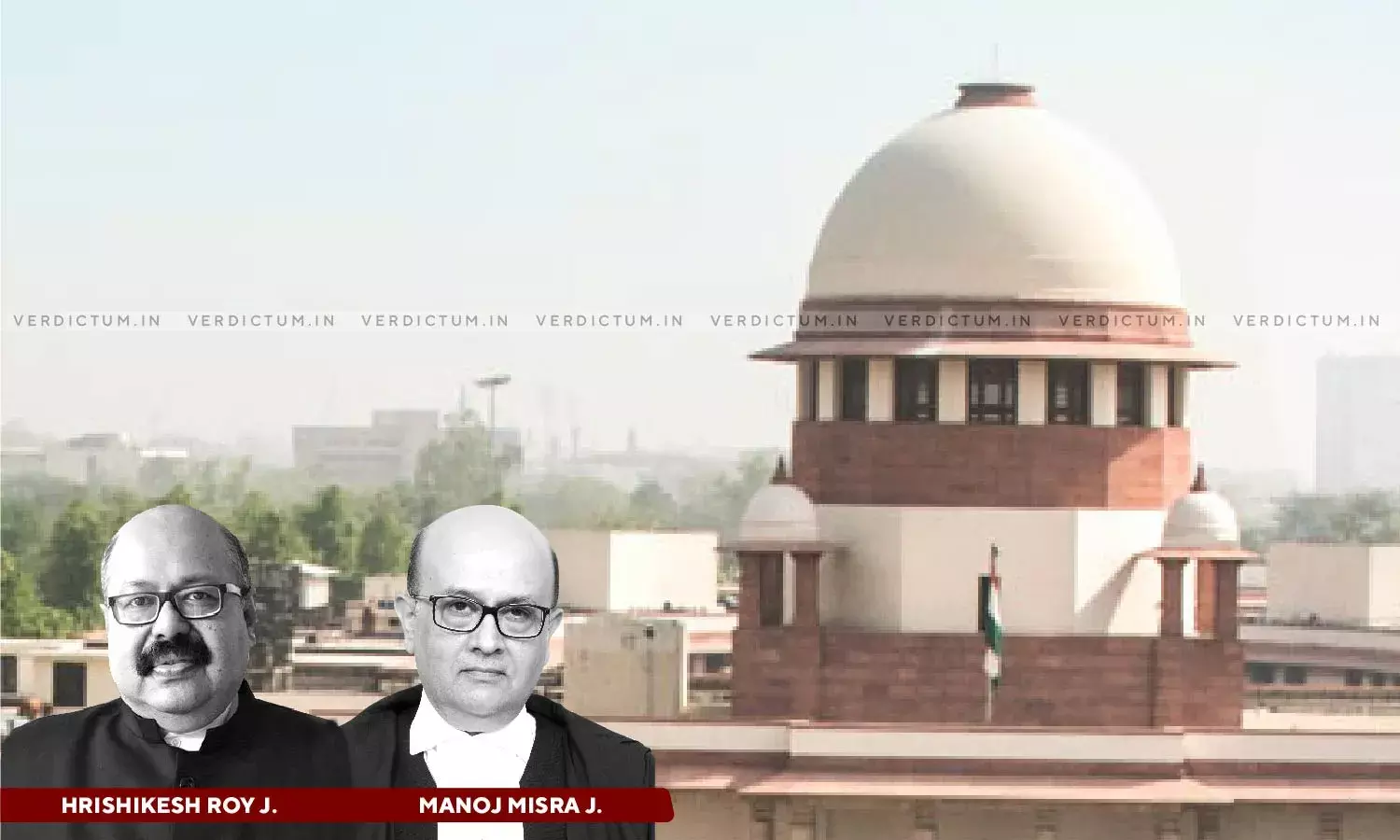Where There’s Delay In Raising Plea Or Is Raised For First Time In Court, It’s Assumed That No Prejudice Had Been Felt By Accused: SC In Murder Case
The Supreme Court in a murder case has said that where there is delay in raising the plea or the plea is raised for the first time in the court, it could be assumed that no prejudice had been felt by the accused.
The Court was dealing with a batch of three criminal appeals filed against the judgment of the Delhi High Court by which the appeals preferred by the accused persons/appellants were dismissed and the order of conviction and sentence of the Trial Court was affirmed under Sections 302/307/34 of the IPC.
The two-Judge Bench of Justice Hrishikesh Roy and Justice Manoj Misra held, “… the legal position that emerges, inter-alia, is that to enable an accused to explain the circumstances appearing in the evidence against him, all the incriminating circumstances appearing against him in the evidence must be put to him. But where there has been a failure in putting those circumstances to the accused, the same would not ipso facto vitiate the trial unless it is shown that its non-compliance has prejudiced the accused. Where there is a delay in raising the plea, or the plea is raised for the first time in this Court, it could be assumed that no prejudice had been felt by the accused.”
The Bench observed that the conviction of the appellants is not vitiated for alleged non-compliance of the provisions of Section 313 of CrPC.
Advocate Sudarshan Rajan appeared on behalf of the appellants while Additional Solicitor General Jayant K. Sud appeared on behalf of the State.
Facts of the Case -
The appellants were convicted and awarded an imprisonment for life with a fine of Rs. 2,000/- coupled with a default sentence of six months rigorous imprisonment under Section 302/34 IPC and five years of rigorous imprisonment with a fine of Rs. 1,000/- coupled with a default sentence of three months under Section 307/34 IPC. In this case, two persons suffered gun-shot injuries and died and 26 others received pellet injuries, some of them being grievous in nature. A man who fired the gun shots from his licensed gun, handed over his gun to the police along with 16 used and 4 live cartridges while setting up a plea of self-defence.
The appellants and another person (acquitted by the High Court) were roped in with the aid of Section 34 of IPC as persons who exhorted the aforesaid man to fire gunshots. According to the prosecution case, there was tension in the locality as boys from the accused side had teased daughter of a man and giving vent to that tension, an altercation took place. As, according to the prosecution, genesis of the incident was a dispute between two families on account of young male members of one family teasing female members of the other. In this scenario, the defence plea was found unacceptable and was therefore discarded by the Trial Court as well the High Court.
The Supreme Court in view of the facts and circumstances of the case noted, “In the instant case, though we could not find that the incriminating circumstance pertaining to appellants exhorting the main accused Babu Ram was specifically put to the appellants, they were aware of the prosecution case against them as, vide question no.(i), they were apprised of the FIR lodged by PW-2 which delineated their role as the ones who exhorted the main accused Babu Ram to fire gunshots. Further, vide question no.(iv) it was clarified that gunshots were fired by Babu Ram. And questions (ii) and (iii) indicated that the appellants were being proceeded against as they had participated in the crime by sharing common intention with the main accused.”
The Court taking the above into account as also that the appellants were throughout represented by their counsel and had cross-examined the prosecution witnesses, yet they raised no such plea, either before the trial court or the High Court, said that the appellants had suffered no prejudice on that count.
“More so, when the case of the appellants was of complete denial i.e., that they were not present at the time of occurrence, which was disbelieved by the trial court as well as the High Court. … though we find the conviction of the appellants under Section 302 read with Section 34 of the I.P.C. unsustainable, we uphold the conviction of the appellants under Section 307 read with Section 34 of the I.P.C. and hereby affirm the sentence awarded to the appellants for the offence punishable under Section 307/34 of the I.P.C. Consequently, the appeals are partly allowed”, held the Court.
Accordingly, the Apex Court partly allowed the appeals, set aside the conviction under Section 302 IPC and upheld the conviction under Section 307 IPC.
Cause Title- Sunil v. State of NCT of Delhi (Neutral Citation: 2023INSC840)



